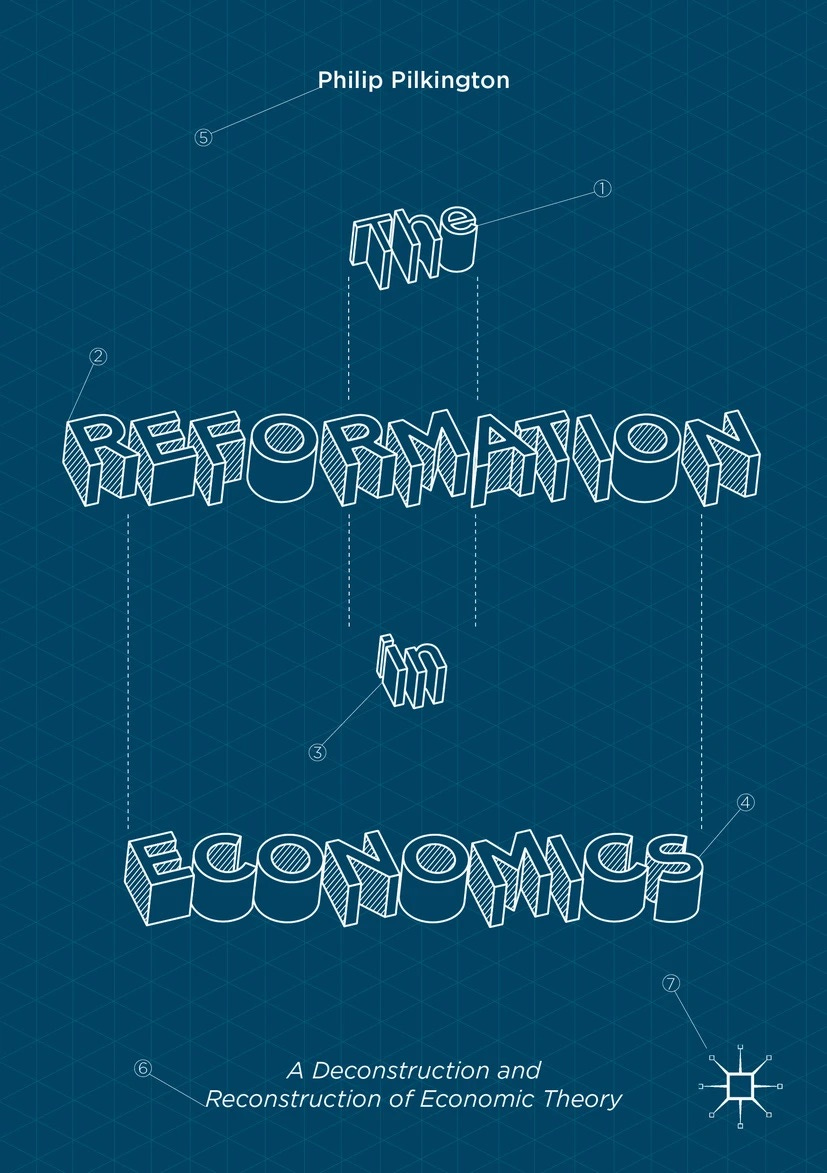It's common knowledge that capitalism has been in a deep crisis of values since the financial crisis of 2007/2008, while the question of where it comes from and how it affects our existing institutions is much more complicated. Talking to Philip Pilkington about this is worthwhile if only because it combines the perspective of a sober observer looking back on a career in investment banking with the acumen of a macroeconomist who can counter his profession's intellectual aberrations based on Philosophy. And because he's also familiar with contemporary thinkers, our conversation dealing with questions of energy, the political class's level of education, and the looming deindustrialization wander easily through entirely different areas. And while you are considering economic »bads,« it may happen that Jacques Lacan pops up, as does Kant’s definition of marriage (›...as a juridical consequence of the obligation that is formed by two persons entering into a sexual union solely on the basis of a reciprocal possession of each other’s private parts‹1) and his tacit affinity to the Marquis de Sade. And so, despite the subject's darkness, the conversation is one of great hilarity—and the question can be resolved why the consultation with an OnlyFans model contributes to the GDP growth while, at the same time, conjugal coitus remains a quantité negligeable.
Philip Pilkington is a Senior Research Fellow at the Hungarian Institute of International Affairs where he focuses on macroeconomic and geoeconomic issues. Before joining the institute Philip worked in investment management as a macroeconomic strategist. Philip is the founder of the Multipolarity podcast. He regularly writes for the New York Post as well as other outlets, like The Telegraph, The Spectator, UnHerd, American Affairs, and First Things. He can be found on his Substack Philip Pilkington.
Philip Pilkinton has published
Related Content
Talking to ... Malcom Kyeyune
Occasionally, we must admit we belong to an older generation with worldviews shaped by our specific generational experiences. This, at least, was what crossed my mind while reading the text of a young Swedish writer considering the question of whether our present-day culture wars could be the result of an elite overproduction in the form o…
The Money Mystery
The fact that the monetary order is a mystery even to the majority of economists is perhaps one of the greatest oddities of our time. This is the subject of this interview with Heiner Flassbeck, former State Secretary and long-time Chief Economist at the United Nations Conference on Trade and Development in Geneva. The conversation too…
Im Gespräch mit ... Thomas Mayer
Wenn es in der Ökonomie den Konterpart des Kriegsphotographen gäbe, so könnte man Thomas Mayer einen ›Physiognomen des Crashs‹ nennen, nicht zuletzt auch deswegen, weil seine Biografie ihn mehrfach ins Auge des Sturms hineingeführt hat. Nach dem Berufseinstieg ins Kieler Instituts für Weltwirtschaft gelangte der junge Volkswirt zum Internati…
From the Abuse Value
As already laid out in this series exploring Martin’s œuvre, he began his writing career questioning what a computer was, laying out the groundwork of those early thoughts in his first published article titled Digitale Metaphysik. He followed this with
Im Gespräch mit ... Aldo Haesler
Mag die klassische Ökonomie schnell zur Tagesordnung übergegangen sein, lässt sich das in den frühen 70er Jahren aufgekündigte Bretton Woods-Abkommen als Wendepunkt in der Geschichte des Kapitalismus begreifen. Seither nämlich ist das Kapital nicht mehr in den Kapitalen zuhause, sondern ist zum Spekulationsobjekt gesichtsloser Finanzmärkte g…
See Kant, I. – The Science of the Right, trans. W. Hastie, Adelaide, 2006, sections 24-27.




















